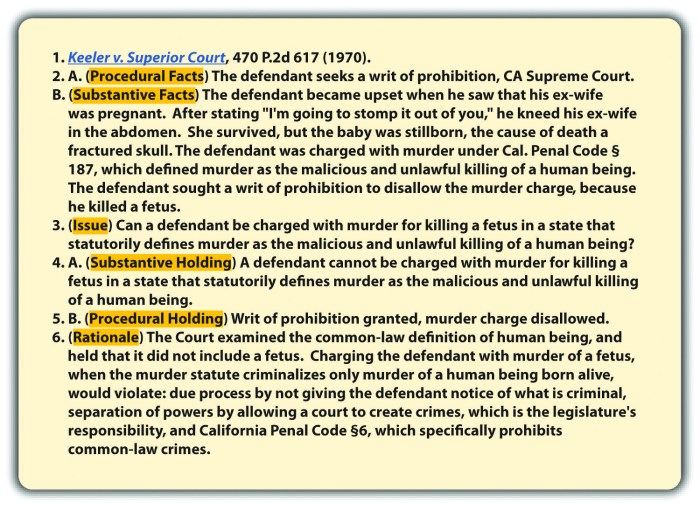Keeler v superior court case brief – Keeler v. Superior Court Case Brief delves into the intricate legal landscape surrounding electronic surveillance and the Fourth Amendment’s protection of privacy. This case, a landmark in the digital age, has significantly shaped the legal framework governing law enforcement’s use of electronic communication technologies.
The case revolves around the Fourth Amendment’s prohibition against unreasonable searches and seizures, and the extent to which this protection applies to electronic communications. The California Electronic Communications Privacy Act (ECPA) also plays a pivotal role in the analysis, as it provides specific guidelines for law enforcement’s access to electronic communications.
Case Overview

Keeler v. Superior Court (1970) involved the warrantless installation of a listening device by law enforcement in a private phone booth. The Fourth Amendment issue was whether this violated the defendant’s reasonable expectation of privacy.
Fourth Amendment Issues
The Fourth Amendment protects individuals from unreasonable searches and seizures. In this case, the court considered whether the warrantless installation of the listening device violated the defendant’s reasonable expectation of privacy in the phone booth.
The court found that the defendant had a reasonable expectation of privacy in the phone booth because he had entered it to make a private phone call.
California’s Electronic Communications Privacy Act (ECPA)
California’s ECPA, enacted in 1967, prohibits the interception of electronic communications without a warrant.
The court found that the ECPA did not apply to the warrantless installation of the listening device because the phone booth was not a “place” protected by the ECPA.
Court’s Reasoning
The court held that the warrantless installation of the listening device violated the defendant’s Fourth Amendment rights.
The court reasoned that the defendant had a reasonable expectation of privacy in the phone booth and that the warrantless installation of the listening device was an unreasonable search.
Impact of the Decision, Keeler v superior court case brief
The Keeler decision has had a significant impact on Fourth Amendment law.
The decision has been cited by courts in numerous cases involving electronic surveillance and has helped to shape the legal landscape regarding the Fourth Amendment and electronic privacy.
FAQ Insights: Keeler V Superior Court Case Brief
What is the key legal issue in Keeler v. Superior Court?
The key legal issue is whether law enforcement’s warrantless acquisition of electronic communication data violates the Fourth Amendment’s protection against unreasonable searches and seizures.
How does the Electronic Communications Privacy Act (ECPA) affect the analysis in Keeler?
The ECPA provides specific guidelines for law enforcement’s access to electronic communications, and the court analyzes whether the government’s actions in Keeler complied with these guidelines.
What was the court’s ultimate holding in Keeler?
The court held that the government’s warrantless acquisition of the defendant’s text messages violated the Fourth Amendment.
